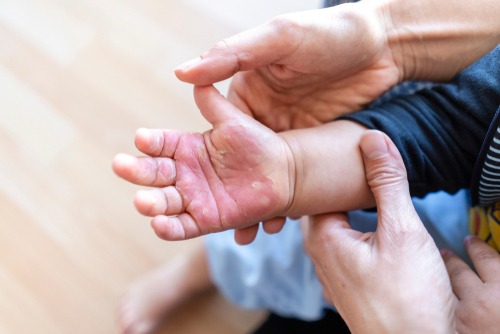
Information for Parents
Burns are often painful. You can give your child paracetamol and Ibuprofen regularly to relieve pain. Ensure you follow the instructions on the bottle carefully, concerning dose and frequency of administration.
Dressing care
Dressings are applied to protect the burn.
Ensure all dressing/bandages are left on until you return for your follow-up appointment. You will need to ring UCC if any of the following occur:
Exercise to reduce swelling
The area that has been burned will become swollen. Exercise will help reduce swelling and prevent stiffness to the affected area.
Leg and foot burns – Make sure your child moves their ankle and toes around. When your child is sitting or lying down, the foot should be higher than the hip.
Facial burns – Swelling can occur 48 hours post injury. This is normal and swelling should reduce within 2 days. Whilst your child is laying down pillows can be propped behind. This will help reduce facial swelling
Occasionally the wound fluid will dry, leaving a crust on the skin. Rinse with warm water remove.
Foods to help aid recovery
To help encourage skin healing your child will need to eat more protein and vitamins.
Protein can be found in foods such as:
Vitamins are found within fresh Veg and fruit.
Long term care following a burn
Burns that take two or more weeks to heal may leave a scar.
The area that has been burned may appear red and itchy.
You can massage the area with a un-perfumed moisturising cream, this helps prevent itching and heal the scar.
Care in the sun
The skin may be sensitive after the burn, it is important to keep it covered and out of the sun for the first summer after the injury.
These areas are at a higher risk of burning compared to skin that hasn’t been damaged. Ensure you apply high factor sun cream all over the body.
What happens if my child becomes unwell?
You should return to The Children’s Urgent Care Centre (0800-2000 Monday-Sunday) or Accident and Emergency (out of hours) if your child has any of the following symptoms:
Further Information
If you need any more information or advice between the hours of 0800-2000 Monday-Sunday please call The Children’s Urgent Care Centre on 02073906150.
Out of hours please contact NHS 111.
Call NHS 111 if you need medical help fast, but its not life threatening- for example, if you:
In case of emergency please call 999 or attend your local Children’s Emergency Department.